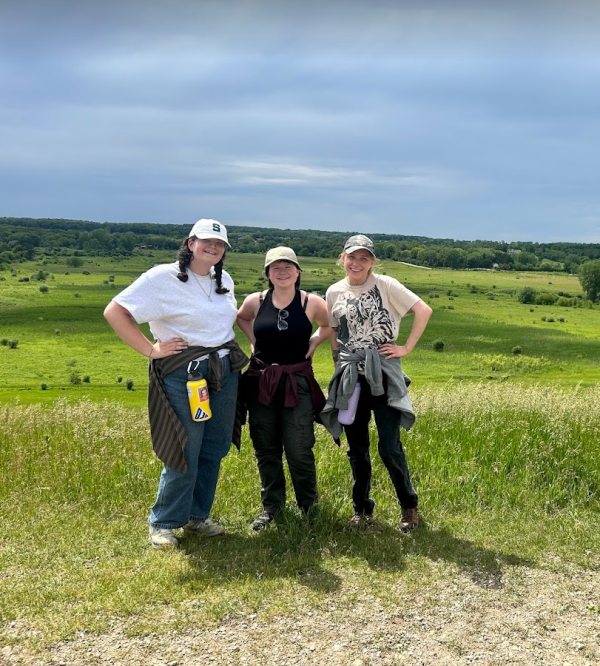
Adventures in Conservation – CLIP 2024 Week 3
We are now three weeks into the CLIP 2024 internship, and we have already learned so much! This week’s update is provided by one of the CLIP interns, Oliver. I am a senior at Cary Grove High School, and am excited to learn and grow my passion for ecology and conservation over the summer!
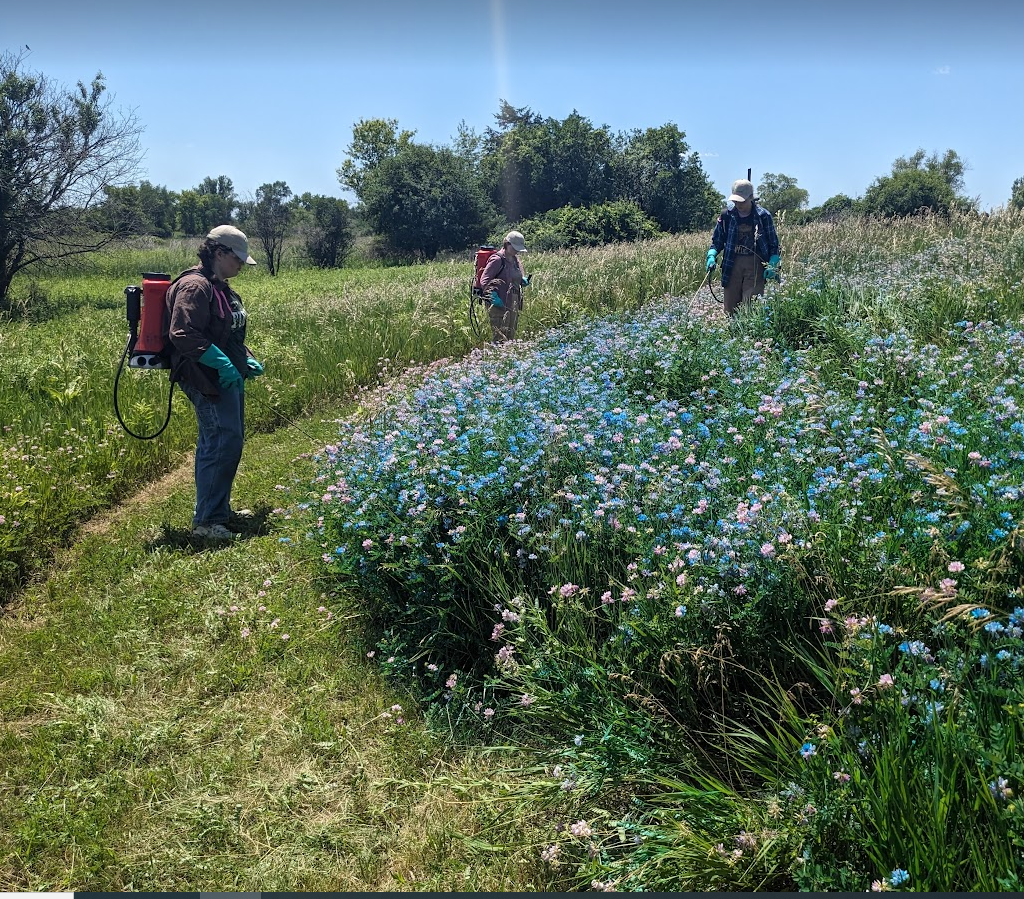 We started off the Monday with a bang, traveling to Irish Oaks to target a variety of invasive forbs and shrubs. We made our first batch of triclopyr in the herbicide backpacks as a team, where we learned what triclopyr targeted and the specific processes it disrupted within the plants. Once the backpacks were safely taken to Irish Oaks, we were told how to identify Garden Valerian without the presence of their flower heads, as well as being introduced to Basil Leaf and Autumn Olive. This was a great chance for us to practice our ID skills in the field because the leaves of our targeted plants tended to blend in well with the surrounding flora. This was also an excellent time to continue to apply safe and effective herbiciding techniques. We ended the day hand pulling any leftover flowering Garden Valerian growing farther into the site.
We started off the Monday with a bang, traveling to Irish Oaks to target a variety of invasive forbs and shrubs. We made our first batch of triclopyr in the herbicide backpacks as a team, where we learned what triclopyr targeted and the specific processes it disrupted within the plants. Once the backpacks were safely taken to Irish Oaks, we were told how to identify Garden Valerian without the presence of their flower heads, as well as being introduced to Basil Leaf and Autumn Olive. This was a great chance for us to practice our ID skills in the field because the leaves of our targeted plants tended to blend in well with the surrounding flora. This was also an excellent time to continue to apply safe and effective herbiciding techniques. We ended the day hand pulling any leftover flowering Garden Valerian growing farther into the site.
Tuesday began at Hennen, collecting more samples of native and invasive plants to add to our plant identification journals, which are growing steadily each week. We learned key characteristics of the Oak family, as well as other identifiers of Hackberry, Elderberry, Black Walnut, and Sugar Maple. After lunch, we packed up and drove over to Glacial Park for an environmental education talk by TLC’s Sarah Michehl! As we hiked through the beautiful site, we were taught how to correctly educate and include the public when it comes to our surrounding environment. By the end of the day, we had learned how to successfully hold a class and also knew all about the history of Glacial Park!
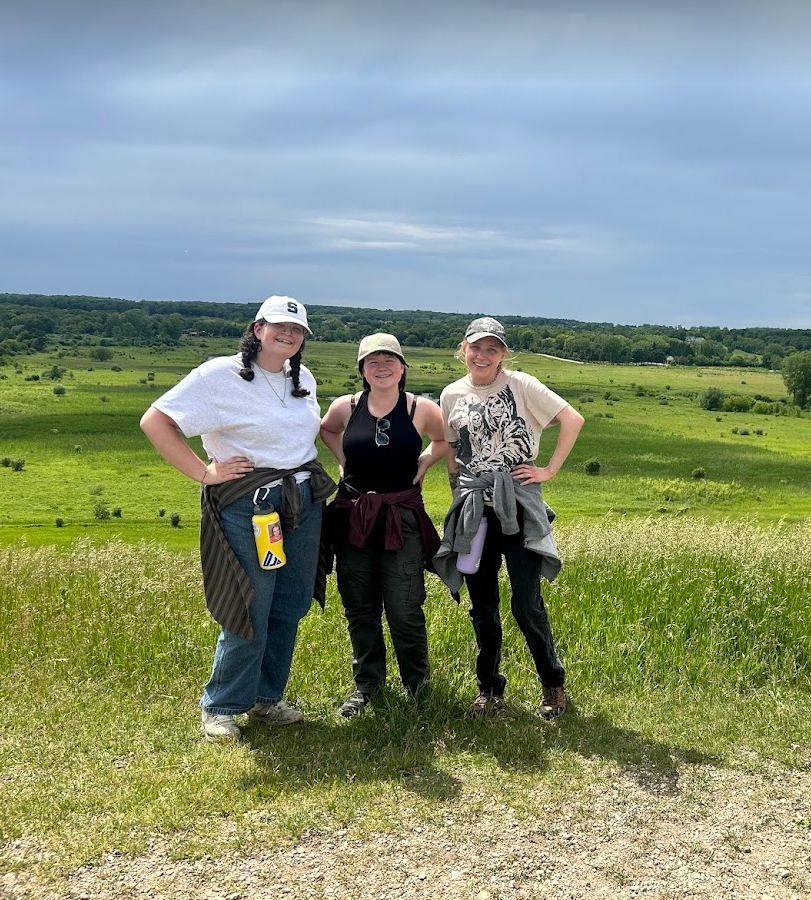
To make sure we didn’t waste any supplies, the first part of Wednesday was focused on using the herbicide that was left over from our Monday excursion. We were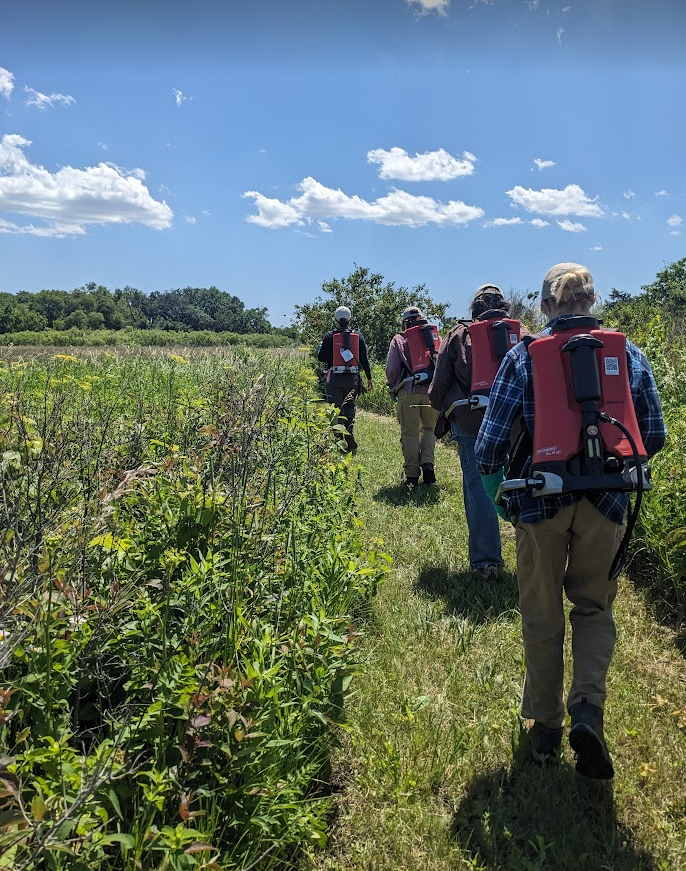 able to tackle more Garden Valerian, Basil Leaf, and Autumn Olive that we had previously missed throughout Irish Oaks. This is beneficial because it makes sure that no herbicide goes to waste, and confirms that no targeted plants were bypassed. The second half of the day was dedicated to planting techniques with Jack and Judy Speer, founders of Small Waters Education. As we split into groups, we were taught how to properly make a pollinator garden using their homemade planting method. We practiced this with Blazing Star, Obedient Grass, and Sweet Grass, among other things, in their food garden, which we were later given an extensive tour of.
able to tackle more Garden Valerian, Basil Leaf, and Autumn Olive that we had previously missed throughout Irish Oaks. This is beneficial because it makes sure that no herbicide goes to waste, and confirms that no targeted plants were bypassed. The second half of the day was dedicated to planting techniques with Jack and Judy Speer, founders of Small Waters Education. As we split into groups, we were taught how to properly make a pollinator garden using their homemade planting method. We practiced this with Blazing Star, Obedient Grass, and Sweet Grass, among other things, in their food garden, which we were later given an extensive tour of.
Led by restoration technician Caroline Smith, the first half of our Thursday focused on seed collection! First heading to Westwood Park in Woodstock, we searched for Yellow Star Grass, a native perennial, along the trails. This was a good opportunity to work on our ID skills, as the seed pods were small and hidden within the other grasses. After successfully foraging, we drove to Wolf Oak Woods where we picked Wild Geranium. While these seed pods were much more obvious and out in the open, it was interesting to see how contrasting flora seed differently. After lunch, we headed back to Hennen for brush saw training! Following the education of correct safety procedures, we took turns chopping down some small invasives within the Hennen trails to get comfortable with the machinery.
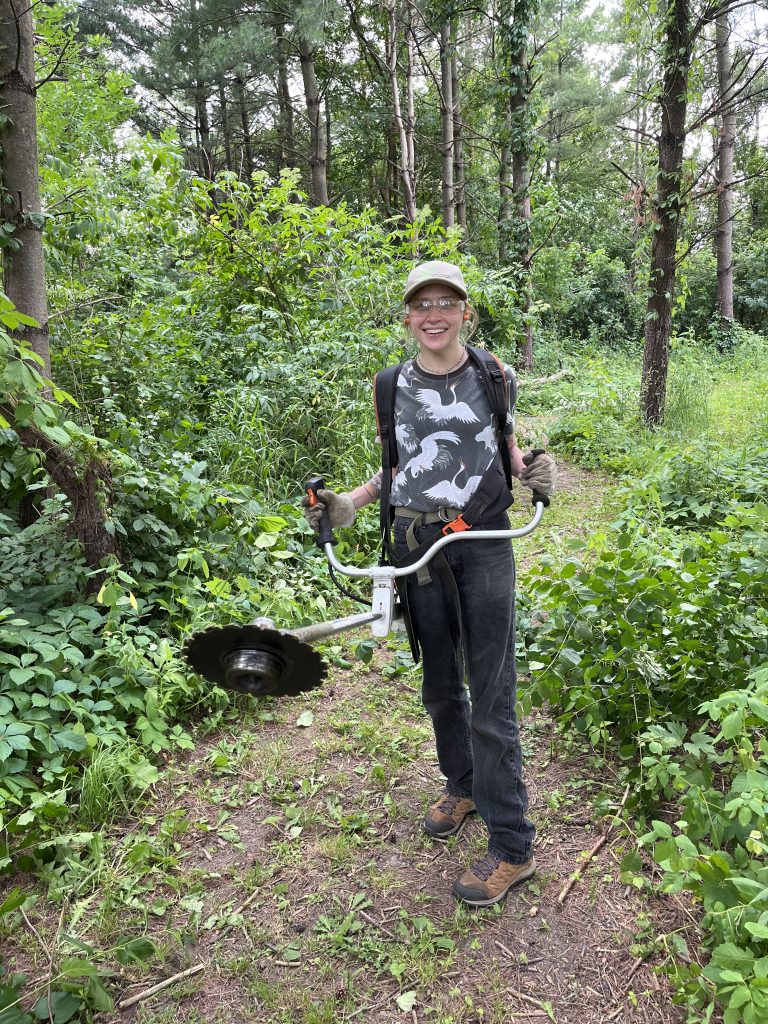
The week ended with more herbicide use, this time tackling the Apple Creek and Westwood areas with MileStone. While traversing the grounds of Apple Creek, we came across an area completely taken over by Crown Vetch, a low growing legume. The flowering plant had pushed out all other life in the area. This was important to witness because we were able to see the true extent to which invasives can harm an ecosystem. We also focused on the Teasel, Sweet Clover, and invasive Thistle that was growing in the area. At Westwood, we saw even more large areas of Crown Vetch. While upsetting beforehand, it was extremely rewarding to think that the native plants affected will be helped by the herbicide. By the end of the day, we were almost completely out of our MileStone, showing the extent of our work and allowing for little to no herbicide waste.
Our third week at TLC has been packed with educational experiences that will not be forgotten later down the line. We are all excited to continue the summer with a growing passion for conservation and an eagerness to learn more about the world around us!